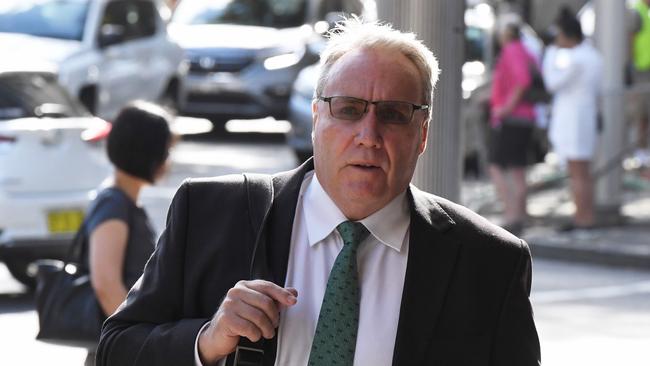Laws to address ATO flaws undermined
Even as Michael Cranston shone more light on problems at the ATO, public servants were undermining new rules designed to rein in it.

The not guilty verdict against former deputy taxation commissioner Michael Cranston turned one of Australia’s senior public servants into a “quasi whistleblower”, confirming fundamental flaws at the Australian Taxation Office.
And the first publicly available draft of the government regulations designed to address those flaws shows that the government employees who devised the draft want no changes at the ATO and are treating small business minister Michaelia Cash and assistant treasurer Stuart Robert as though they are complete fools.
The tactic is to insert clauses in the proposed regulations that make the government’s announced appeal body totally useless. Those who drafted the regulations appear to have assumed that the ministers will not bother reading the draft. Fortunately, both Robert and Cash are awake to the games being played and the fundamental weakness it shows in those working in top positions in government.
There was a time when government employees tried to implement the view of the government and not plot to undermine it. And Cranston’s evidence shows how dangerous the ATO’s basic flaws have become to both the community and our revenue base. I should emphasise that Cranston’s “whistleblowing” is not in the same league as national hero Richard Boyle, who told the truth about the ATO in the national interest (causing both parties to change policy), knowing that he would be punished
Cranston gave damming details of the ATO mess in a court case where he was the accused. But the fact that a jury of Australians evaluated his evidence and found it to be true enabled him to be acquitted of the charges, thus turning the former ATO deputy commissioner into a “quasi whistleblower”. Had Cranston been found guilty the situation would have been different.
The tax office investigation system at base level is spearheaded by so called “auditors”. Auditors assigned to large corporate accounts are usually brilliant. But what we have seen in personal and small business tax affairs is that the ATO’s auditors all too often do not do the detailed work and come up with a theoretical liability that is not right.
They then negotiate using their ability to bankrupt the victim with a huge but false tax assessment that the business cannot pay as a weapon. We saw the power of these actions as the ATO “auditors” devastated those receiving government research grants, and in the gold industry. In gold there was no negotiation — just destruction of the whole industry.
Cranston told the jury: “I was always looking out when my auditors went a bit too far, which happened often.”
Elsewhere Cranston said he was concerned about the correct application of tax law and was “always looking out” for examples of when tax office employees were “too aggressive”.
Cranston revealed he was concerned with the “culture” within the tax office and about cultural issues, although his remarks on culture were linked to the circumstances of the case.
At one point he said his son had asked him for the name of someone senior at the tax office that the son’s business associate could speak to. Cranston said: “This was quite a usual practice… Letters like this were frequently raised with me by tax agents, because they couldn’t get through to talk to someone in an official way.”
Bruce Collins, who ran the ATO’s Technical and Case Leadership team handling complex tax matters until he retired in April 2017 told the court: “Michael’s job was to make sure that the wheels didn’t come off and embarrass the tax office”.
Cranston had referred tax matters to Collins “hundreds of times” where he feared the tax office had been too aggressive, and his role was to “manage the enthusiasm” of some tax officers.
The evidence in the court confirmed what myself, Fairfax journalist Adele Ferguson and Four Corners have been revealing on a case-by-case basis and which thankfully the government is addressing.
The key to the government’s proposed regulation is that the tax auditors, would, without lawyers, have to explain to an independent umpire, the Small Business Tax Tribunal, why the tax was owed. The small business person (after being checked by other bodies) must explain why the tax people are wrong. Tax auditors who have done their homework will be fine. But tax auditors who in the words of Cranston have been “too aggressive” will be caught out.
In the proposed regulation draft, to prevent those bad tax auditors being exposed, government employees inserted two paragraphs designed to make useless the whole government proposal
The first inserted paragraph says the ATO “may” engage lawyers and if it does it “may” also decide to meet the costs of legal representation for small businesses. In other words, if the tax auditors have been playing games a lawyer will help them out and perhaps, costs for the small business will be met. But the Coalition’s plan, as announced, clearly set out that lawyers must only be involved when legal issues are raised.
But in the first draft if the tax auditors needs more than a lawyer to win then the ATO can undertake enforcement actions while the small business tribunal is actually considering a matter. In other words, the ATO can end proceedings using its so called “death gun” whereby a legally binding liability (called a tax assessment) is issued on the small business which ranks above the bank and all other liabilities. As we have seen so often the assessment is usually set at a level that bankrupts the small business. Once the ATO does that the case closed because the business has been destroyed.
Fortunately, Robert and Cash are not stupid.




To join the conversation, please log in. Don't have an account? Register
Join the conversation, you are commenting as Logout